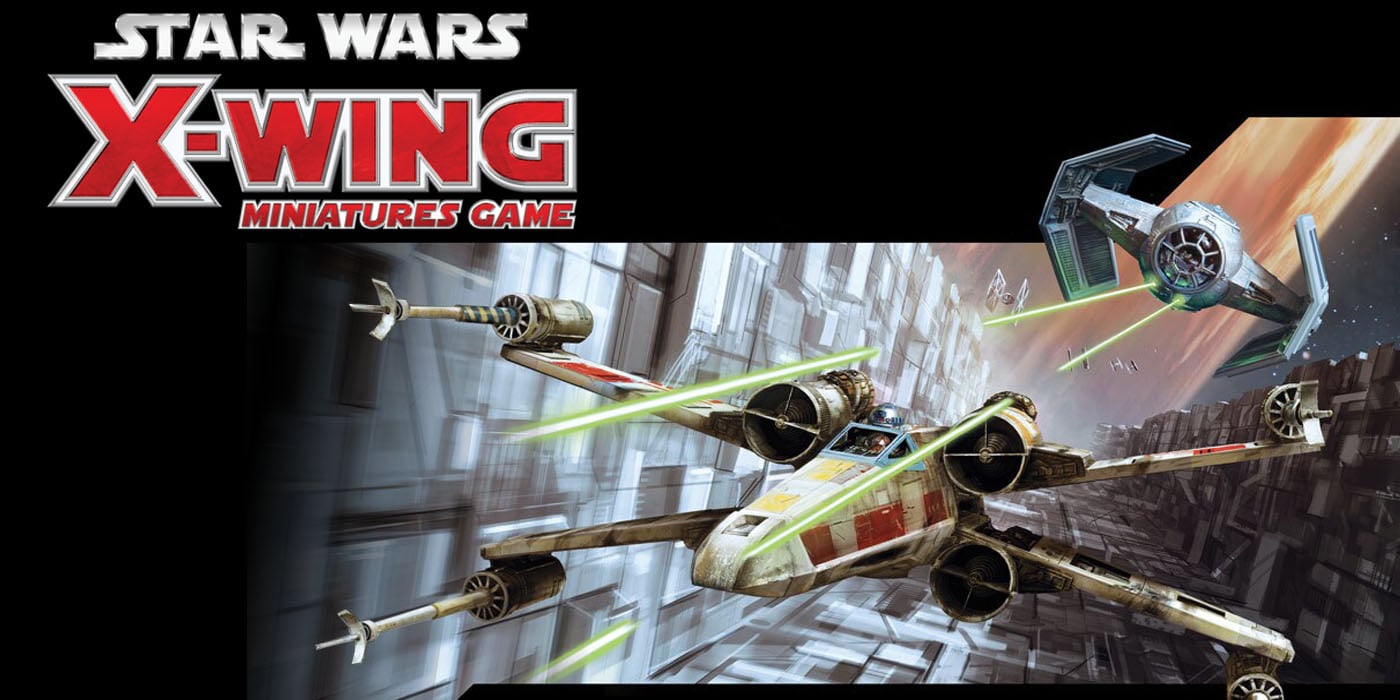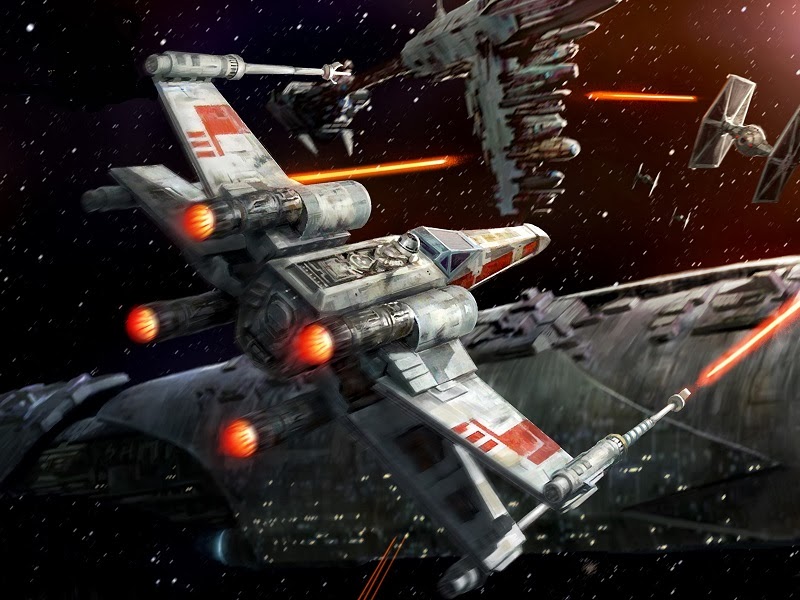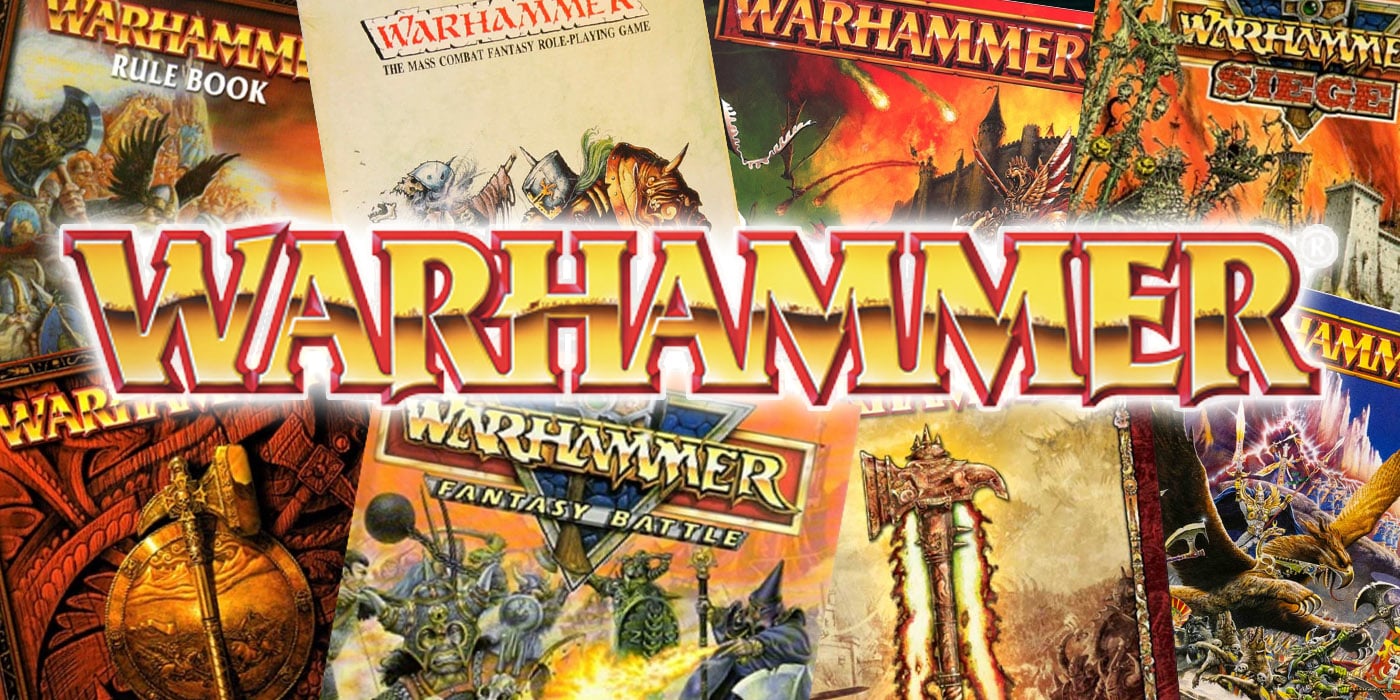X-Wing 5 Reasons this Game is a WINNER

 |
| Hold on tight, prepare to read. |
There are 5 things that makes X-Wing one of the best miniatures games I’ve ever played.
Let’s head right into a galaxy far, far away…
Simple and Clean
X-Wing has one of the smoothest rulesets I’ve ever played in a minis game. There’s only a few phases in the game and generic special rules that you have to follow and that’s pretty much it. Movement is completely dictated by visual aids and helped along with pre-determined measurement sticks. Everything that you want to do is printed out, provided and helped along on the tabletop so you clearly see what’s going on at all times. I find this to be the future of miniatures gaming in general. Warmachine has battle tokens to symbolize exactly how many Focus a Warcaster has, and if he casts something, you place the corresponding spell token down on the table. Warhammer recently came out with magic spell cards that you can put near a unit being afflicted by a spell. Anything that helps the player visually is extremely important in speeding up gameplay as well as keeping the game itself organized. X-Wing takes it one step further in that you don’t need a ruler to play the game. You simply pull out a flight stick and move the distance in your speed dial, or measure with a range stick how many dice you can throw in attack. It’s simple, clean and effective.
The game itself is easy to setup and plays fast. You can play most games no matter how grueling in under an hour. Part of this is because there’s no ruler to calculate every single inch or half inch, and everything is in front of your face so it’s impossible to forget. This is extremely attractive for the modern gamer because you can build a list, put your models on the table and get to playing right away. It plays smoother, faster, and you can fit more games in the same time you would another minis game. To make things even easier, you don’t even need to paint the minis because they come pre-painted. I checked out some of the minis in person recently and they’re pretty damn good for the price you pay for it. You can always re-paint them if you don’t like how they look after all. X-Wing, in this regard, is more than just a miniatures game, it’s the Steam-equivalent of what miniatures game should be in the modern era. I don’t need to construct or paint anything, I can simply open up the box of minis and put them straight onto the table.
Personality and Depth
When I say the game is simple to play, I don’t mean it’s shallow. One of the biggest concerns that I have with any game going in is the skill cap. If I’m going to be invest time, effort, and most importantly, money into a hobby, I want it to be worth my time. As a hardcore gamer, the hobby side of things is already taken care of so I’m thankful the minis I put on the table won’t look like ass. With that out of the way, I can focus on the core gameplay mechanics and rip it apart from top to bottom. Out of the five games I’ve played so far, there is a huge amount of depth lying underneath the easy to learn ruleset. This, my friends, is how you know you got a winner.
One of my favorite games ever created is Pokemon. On the surface level, it’s easy enough that even a child can understand it: Fire burns grass and water puts out fire. A lot of people stop right here and that’s perfectly fine. If they want a game that they can go around and collect Pokemon cards with their friends, good for them. However, if they really want to dig into the game and find out the inner workings of it, they’ll find something so alien and unfathomable that it’ll be like playing something completely different. Now enter the world of competitive battling: Tiers, EVs, IVs, natures, breeding, and specific movesets that shapes and molds an entirely different metagame. To me, this is where the game really begins.
X-Wing is no different in that regard. Despite having a remarkably simple ruleset, there’s a near infinite level of possibility and customization. We all know there’s several different kinds of ships that’s used to shoot down other ships. What we need to realize is that there’s several ranks to these spacecraft with different pilot skills, different ships have different maneuverability, unique pilots have their own special rules, modifications, weapon upgrades, elite pilot skills, the list goes on. All of these elements come with built-in or added points costs, so list design is very thought-provoking and fun. In a standard tournament point range of 100 points, you can do virtually anything you want with the options presented to you. This is where the game truly becomes challenging as you’re customizing your playing experience based on your personal preferences. No other minis game in the last decade presents itself this way in my honest opinion. This game truly exemplifies the meaning of “easy to learn, hard to master.”
Action and Reaction
I’m not going to lie when I say this, but I’m pretty done with the my-turn-your-turn ideology of gameplay. It’s an awful system to begin with and one of the reasons why games like that don’t sing to me the way they used to. As an competitive RTS player at heart, I enjoy live action where you can make important decisions in real time. Since you can’t really do it in a miniatures game, you have an action/reaction system instead. When your opponent does something to you, I want to be able to answer back instead of just pulling models off the table. This is just a method of gaming that I like and I understand that it is not the same for everybody. Infinity has a similar system via AROs and honestly, that’s the only thing I like about that game. In short, there’s nothing more insulting than watching your opponent total you without being able to do anything in response. That’s one of the reasons why I’ve shied away from Warmachine and one of the reasons why I think Seize the Initiative is the worst thing to happen to 40K. Sure, you can do the same thing to your opponent, but that’s no way to enjoy a game.
One of the best gameplay features from X-Wing is how it incorporates Pilot Skill into how players act and react in a game. When the round starts, pilots with the lowest skill moves first, followed by the pilots with higher skill. Whether or not this shows the rookie’s inexperience and eagerness for battle is up to your imagination. The fact is, this happens to the entire board and both players activate their pilots in corresponding order. Because the action phase happens immediately after a single pilot makes his move, the higher skilled pilots can react to how aggressive the lesser skilled pilots are and adjust their actions accordingly. If a lower pilot overextends, a higher skilled pilot might want to kill him right away. Should the pilot who moved first anticipate this, he might want to Evade during his action phase. When it comes down to the combat phase, the pilots with the highest pilot skill shoots first before going down the skill tree. This not only portrays the experience of the pilot, but it helps maintain the fluidity of active gameplay. Regardless of how you look at it, both players are constantly moving their ships around during the movement phase. This makes the game much more enjoyable for both players because they’re both actively playing the game.
Prediction and Bluffing
Going back to Pokemon, one of the most difficult things to master in that game is prediction. Prediction is a skill that only experience or instinct can leverage and once mastered, will give you an edge over your opponent. If I predict my opponent will switch out his Pokemon right now, I’ll be able to setup this ability that’ll allow me to sweep his team. Does he go for it? Only experience will tell him what to expect, and sometimes he will guess wrong and it’ll mean his downfall. This is a chance that every competitive player has to take, but he’ll be able to make more educated guesses the more he plays the game. At the end of the day, prediction adds another layer of strategy where lesser game systems don’t provide it at all.
Now enter X-Wing, where the entirety of the Planning Phase is based on prediction, anticipation, and guesstimation. Every single move you make on the battlefield before your pilots even start turning is made with a movement dial placed face down. Each type of ship has its own movement dial and thus, every ship’s ability to maneuver is different. An X-Wing will not be able to pull off the same maneuvers as an Tie Fighter and that’s something both players will have to learn. The best example I can give here is that: You have two Tie Fighters closing in on your tail and you’re down to your last hull point. Your ship is already turning soft left, so do you want to hard bank right to try to throw them off? Maybe if you fly straight ahead you can gain some distance between them. What if you preform a Koiogran Turn right now and go out guns blazing? Now imagine the same situation with different pilot skills on the table where movement actually happens in ascending order.
The morale of the story is: The X-Wing decided to bank hard right and the Imperial player predicted he would. Not only did they go in the right direction, but they closed the distance and ended up with +1 attack dice for being in range 1. Hmm.. gg wp.
Fun and Immersive
Probably the biggest draw that any game has going for it is simply; how fun it is to play. This is incredibly subjective and normally compounded over several different things. For me, I think the game is awesome. The ruleset is easy to learn, but the game itself is hard to master. Prediction is one of the key driving forces to how movement is dictated and it can either be a boon or fatal flaw. I love skirmish style games and having the ability to play multiple games in the span of a single WHFB game is very appealing. The buy in cost is also fantastic, although I do hope that FFG put out more stock (stuff literally flies off the shelves, I wonder why). This is the only game I’ve played in a while that I can literally go from box to table in a span of a few minutes. I love the fact I can play with regular pilots as well as the more famous pilots that we see in the movies e.g. Vader and Luke. I love the customization options and the ability to customize my ships with the pilots that I like, and have them behave exactly how I want. Most of all, I love the alternating gameplay where both players are immersed in the fantasy that is flying around the galaxy with starfighers. As a hardcore gamer, this is the perfect game for me.
My friend and I talked about how this game translates the fantasy onto the tabletop, and I think it’s near flawless. A lot of the unique pilots have skills that fits them very well in their each unique way. This gives them personality, character and the desire for players to make them want to succeed on the table. I just love how Imperial pilots are more about the individual skill of the pilot themselves and how synergistic the Rebel pilots are with each other. Sure, a Tie Swarm will look pretty epic, but so is Biggs’ heroic sacrifice so Wedge ends up killing everyone.
The best way to describe it is: If you took a photostory of a game of X-Wing being played and played it back without hands, rulers or dice, it would look like a scene from Star Wars. In that respect, I think this game nailed it. How about you?


